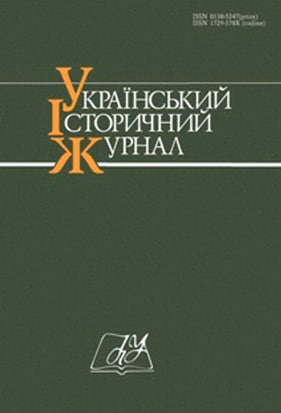Scientific and Educational Intelligentsia in the Ideological Transformations of the Perestroika
DOI:
https://doi.org/10.15407/uhj2021.02.129Keywords:
Perestroika, Glasnost, democratization, scientific and educational intelligentsia, ideologyAbstract
The research goal – taking into account the relevance and insufficient study of this topic, the set a goal was to find out the position of scientific and educational intelligentsia in the period of Perestroika on the basis of archival sources and press then, to reveal its role and place in the processes of ideological, ideological transformations in the state.
The research methodology. It is based on the principles of historicism, scientificism, comprehensiveness, consistency and objectivity. Historical-situational and logical-analytical methods have been used to cover the problem. Thus, research is based on methods that avoid prejudice and one-sidedness.
Scientific novelty. On the basis of unpublished documents and journals the ambiguous position of the scientific and educational intelligentsia in the era of socio-political transformations of 1985–1991 was analyzed. Scientific novelty is determined by the fact that it is one of the first attempts to comprehensively analyze the scientific and educational representatives as ideologists and crystallizers of the social consciousness and world outlook of the citizens of the specified period. Emphasis is placed on highlighting a number of problems educational an related issues Perestroika and Glasnost.
Conclusions. The Soviet system considered and used the scientific and educational intelligentsia as moderators of public opinion, undeniable authority. This, in particular, is evidenced by the educational institution Knowledge Society, which was engaged in the dissemination of political and scientific knowledge in UkrSSR, was a means of comment and propaganda, an inculcation of communist ideology. This society included the best representatives from the scientific and educational environment. The course of Perestroika, Glasnost, democratization contributed to the coverage of a number of problems both in the sociopolitical, socio-economic, and in the historical and cultural life. And the scientific and educational intelligentsia, as the most progressive layer of society, was at the epicenter of events and, on the one hand, had to carry progress, a new world view, and on the other, not to deviate from communist dogmas, ideologies.


